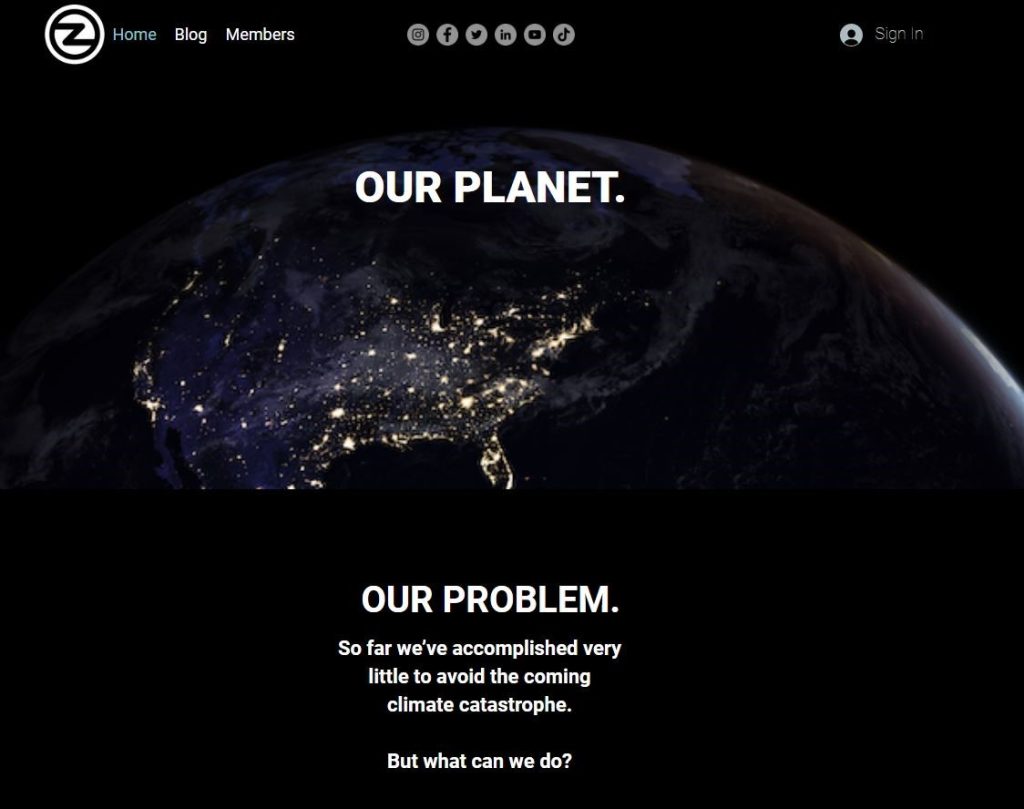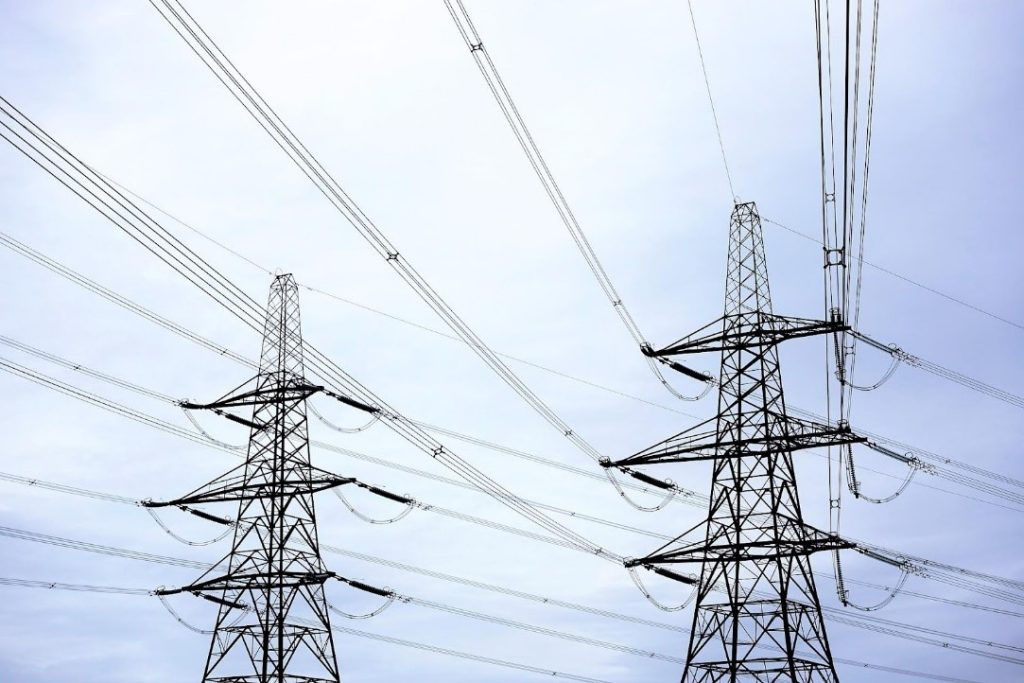January 31, 2023
Watt’s Up with Zettawatts?

T. Scott Case is no stranger to entrepreneurship. He started his entrepreneurship journey by mowing neighbors’ lawns at age 12. After his second startup, he became Founding Chief Technology Officer at Priceline, a company that hit over a billion dollars in sales in just two years. Now, he’s applying his entrepreneurship expertise and desire to help the world to solve the greatest challenge of our time: climate change.
Past Successes Paving the Way
Case shared that he grew up in an affluent suburb of New York City. He said he had the privilege of access to computers before most people since his dad was a software engineering manager. As a result, he was intrigued by computers and entrepreneurship from a young age. In high school, Case set up basic computer networks for law firms. That was when he got the bug for the intersection between computing and entrepreneurship. In college, Steve Jobs and Bill Gates were emerging technology leaders, and that inspired Case to join a software development startup. He spent two years building software and writing code, then another two years trying to sell it, which he found to be a challenge. At this time, Case met Jay Walker who ultimately became the founder of the very successful company Priceline.

[The Priceline logo (Source)]
Based in Washington, D.C., Case leveraged his commercial success to make a difference as a social entrepreneur, including CEO of Malaria No More and CEO of the Startup America Partnership. Also, he is Chairman of Network for Good, a donor-advised fund that distributes about $600 million a year to 250,000 small charities.
Tackling Climate Change
Following his successful entrepreneurship and social good endeavors, Case was interested in working on how we can extend humanity beyond our solar system over the next couple hundred years. But he kept coming back to the near-term challenge here on Earth that requires humanity to invest its time in dealing with the consequences of climate change. That is when he began studying climate impacts and possible solutions for reducing greenhouse gas emissions.
One of Case’s main takeaways from his research was that humans are dependent on fossil fuels and that electrifying everything is necessary for combating climate change. “Everything we hold dear, for the vast majority of people, has been built upon what amounts to very cheap energy in the form of fossil fuels,” he said. Case knows the necessity of transitioning to electricity generated with clean energy sources. His new focus is on how to get abundant, widely available, affordable, clean energy to everybody.

“Our highest-level ambition is to make clean electricity as available and affordable as the internet itself.”
Since his experience at Priceline in the late 1990s, Case said that he has seen the Internet become ubiquitous, where most people have access to it. “I believe that if we had clean electricity at the same marginal cost, we would be in a place where we would mitigate a number of the challenges we face with climate change as well as leverage it to adapt.”
To accelerate the transition to clean energy, Zettawatts is creating a product to balance the mismatch between the demand and supply of renewable energy projects. Case explained that corporations and commercial real estate holders that have committed to net zero carbon targets want and need renewable energy, but there is an undersupply of renewable energy generation to meet their needs. At the same time, thousands of wind, solar, and energy storage projects have been planned across the United States, but the problem is that these projects are backlogged, caught up in lengthy permitting, financing, and utility company planning processes. He said that if construction began immediately, this pent-up backlog of clean energy could meet the demand of corporations and commercial real estate holders.
While there are many barriers to these projects getting built, the greatest challenge according to Case is the way utility-scale projects are financed. Commercial real estate owners and mid-size occupiers are too small individually to enter into long-term purchase agreements with project developers. He said, “Only a few companies are set up to make the investments required to take advantage of the income tax credits that tax equity provides.” Therefore, Zettawatts will help match demand to meet supply by acting as a long-term buyer to support the financing of projects that can increase renewable energy generation and reduce fossil fuel usage in the United States.

Pivoting for the Planet
While creating Zettawatts, Case had to pivot. At first, he planned for Zettawatts to focus on getting individuals to invest in clean energy projects to help accelerate the transition to clean energy. However, the more he researched, the more he appreciated that the real challenge came down to Economics 101 and the imbalance between supply and demand for renewable energy; the need to get planned projects connected to the grid in short order is paramount to stem climate change. He explained, “There’s literally a point, an interconnection point, where a solar farm has to actually connect to the transmission infrastructure to move the electricity around.” He noted that operators could be concerned about the reliability of the power source and how it could disrupt the available energy. Accordingly, he moved away from his original focus on individuals and shifted the Zettawatts mission to solve one of the bottlenecks to the clean energy transition.
Case said the biggest challenge is that the electric grid is complicated with a lot of moving parts. All of the electricity grid started off as a regulated monopoly and all the rules and regulations were structured to provide advantages to incumbent utilities. He has had to learn how the system works, its strengths and shortcomings, and what parts of it are likely or unlikely to change in the near future.
Pivoting might be frustrating to some people, but Case’s philosophy is that an entrepreneur must fall in love with the problem, not the solution.

[Electricity grid (Source)]
Recognizing Privileges
Case shared that resources have been instrumental to his own success and are important to the success of others. For example, he could start mowing lawns at an early age because he had access to a lawn mower and neighbors with lawns. His early access to computers also helped him have success in the field. Now, he can merge his entrepreneurship expertise, a resource, with available climate data to find ways to solve climate change.
Case emphasized that he has privileges not available to all people. As a product of an affluent childhood, he said, “I’d be remiss if I didn’t recognize that I’ve benefited from a system that was largely designed for people who look like me.”
“Where you grew up, who your peers are, who you have access to, and how society or the system views you is an extra burden or asset depending on those circumstances.”
The Zettawatts founder’s advice to people interested in entrepreneurship, especially young aspiring entrepreneurs, is to think of all the resources available to them. While the playing field is not level for all people, Case said most people have more resources than they realize, and they can use resources like their friends and friends’ parents to build their network. They can also cold contact people on LinkedIn when there is mutual relevance. He said that he’s had a lot of successes and challenges in his career and that these experiences inform his decisions and help him avoid mistakes he’s already made.
Case said he recognizes that entrepreneurship requires a beginner mindset and continual learning, and he is ready if needed to pivot his company again as he learns about clean energy. Contact Scott Case on LinkedIn if you’d like to learn about the development of his company since his interview with Heart of Waraba in August 2022.
Author: Jessica Reid
Jessica Reid is an environmental studies, public policy, and media and journalism student at UNC-Chapel Hill in the United States. Her passion is understanding how to strategically communicate about the environment to inspire the necessary changes to create a more sustainable future. From Apex, North Carolina, she loves to write and spend time outdoors.